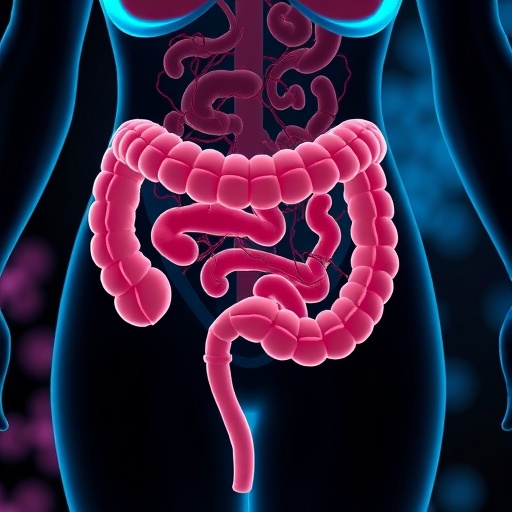In recent years, the intricate relationship between the gut microbiota and various metabolic and hormonal disorders has captured the attention of researchers worldwide. Among these disorders, Polycystic Ovary Syndrome (PCOS) stands out due to its prevalence and impact on women’s health. A groundbreaking study led by Xia et al. has uncovered compelling evidence linking gut microbiota dysbiosis with PCOS, specifically emphasizing the phenomenon of phlegm-dampness, a unique perspective rooted in traditional Chinese medicine. Utilizing advanced 16S rRNA sequencing techniques, this research unveils the critical role that gut health plays in endocrine function and overall well-being.
The study’s findings highlight that individuals suffering from phlegm-dampness PCOS exhibit a distinct alteration in their gut microbiome compared to healthy counterparts. Dysbiosis refers to an imbalance in the microbial communities residing in the gastrointestinal tract, which can lead to various health issues. This particular research adeptly illustrates how such imbalances can exacerbate hormonal irregularities, thereby intensifying the symptoms commonly associated with PCOS. The implications of this study extend beyond mere association; it suggests that rectifying gut microbiota imbalances could provide therapeutic avenues for managing PCOS.
Central to the research is the role of short-chain fatty acids (SCFAs), which are fermentation by-products produced by gut microbiota. These SCFAs have been documented to possess anti-inflammatory properties and to improve insulin sensitivity, crucial factors that may mitigate the effects of PCOS. However, the findings from Xia et al. reveal a significant depletion of SCFAs in individuals with phlegm-dampness PCOS, suggesting a potential metabolic dysfunction linked to gut microbiota composition. The loss of these protective metabolites might therefore contribute to the pathophysiology of PCOS, emphasizing the need for a comprehensive approach to treatment that includes addressing gut health.
Moreover, this cross-sectional study enhances our understanding of the gut-brain-axis and its relevance to hormonal health. The gut microbiome can influence the central nervous system, ultimately affecting hormonal regulation. Dysbiosis can trigger inflammatory responses that may impact not only ovarian function but also metabolic processes across the body. Thus, the interplay between gut health and endocrine function signals a pivotal area for future research and potential therapeutic intervention.
The methodology employed in this study is a testament to the advancements in microbiome research. The use of 16S rRNA sequencing allows for an in-depth analysis of bacterial populations within the gut, providing insights that traditional methods could not offer. This cutting-edge technique not only identifies the presence of specific bacterial taxa but also quantifies their relative abundance, painting a comprehensive picture of microbial diversity. Such precision is crucial for understanding the nuances of how specific bacteria may influence health outcomes in women with PCOS.
As the authors delve deeper into the implications of their findings, they advocate for more personalized treatment approaches for individuals suffering from PCOS. This could involve probiotic and prebiotic interventions aimed at restoring healthy gut microbiota, thereby enhancing the production of SCFAs and reducing inflammation. Furthermore, lifestyle modifications, including dietary changes and exercise, can play a vital role in supporting gut health and, consequently, endocrine function.
Importantly, this study aligns with a growing body of evidence advocating for the integration of holistic approaches in managing chronic conditions. Traditional healing practices, particularly those rooted in Eastern medicine, have long recognized the importance of gut health in overall well-being. The concept of phlegm-dampness in traditional Chinese medicine offers a unique lens through which modern research can enhance our understanding of PCOS and its multifactorial nature.
The cross-sectional design of the study provides a snapshot of the relationship between gut microbiota and PCOS, urging future longitudinal studies to explore causation and the potential for intervention over time. Researchers are encouraged to investigate whether lifestyle or dietary modifications can lead to lasting changes in gut microbiota composition and whether these changes may in turn improve PCOS symptoms.
In the context of public health, addressing gut microbiota health could revolutionize how we approach women’s health issues, particularly those related to reproductive endocrinology. The implications of this research are vast, encompassing the need for educational initiatives that inform both healthcare providers and patients about the integral role of gut health in managing PCOS.
Finally, while the study by Xia et al. represents a significant advancement in our understanding of the relationship between gut health and PCOS, it also highlights the necessity for ongoing research. This burgeoning field of microbiome research holds promise for uncovering innovative treatments for a variety of disorders and for fostering a more nuanced understanding of health and disease intersections.
In conclusion, the findings presented by Xia et al. signal a paradigm shift in how we perceive and address Polycystic Ovary Syndrome. By spotlighting the gut microbiome’s influence on hormonal health, this research invites a re-examination of treatment strategies, emphasizing the vital connection between our digestive systems and endocrine health. The future direction of PCOS management may very well lie in nurturing a balanced gut microbiome, thereby unlocking pathways to improved health outcomes for women around the globe.
Subject of Research: Gut microbiota dysbiosis in phlegm-dampness Polycystic Ovary Syndrome.
Article Title: Gut microbiota dysbiosis and short-chain fatty acid depletion in phlegm-dampness polycystic ovary syndrome: a cross-sectional 16S rRNA sequencing analysis.
Article References:
Xia, XY., Chen, Y., Zhang, XJ. et al. Gut microbiota dysbiosis and short-chain fatty acid depletion in phlegm-dampness polycystic ovary syndrome: a cross-sectional 16S rRNA sequencing analysis. BMC Endocr Disord 25, 255 (2025). https://doi.org/10.1186/s12902-025-02076-y
Image Credits: AI Generated
DOI: https://doi.org/10.1186/s12902-025-02076-y
Keywords: Gut microbiota, Polycystic Ovary Syndrome, phlegm-dampness, short-chain fatty acids, dysbiosis.




